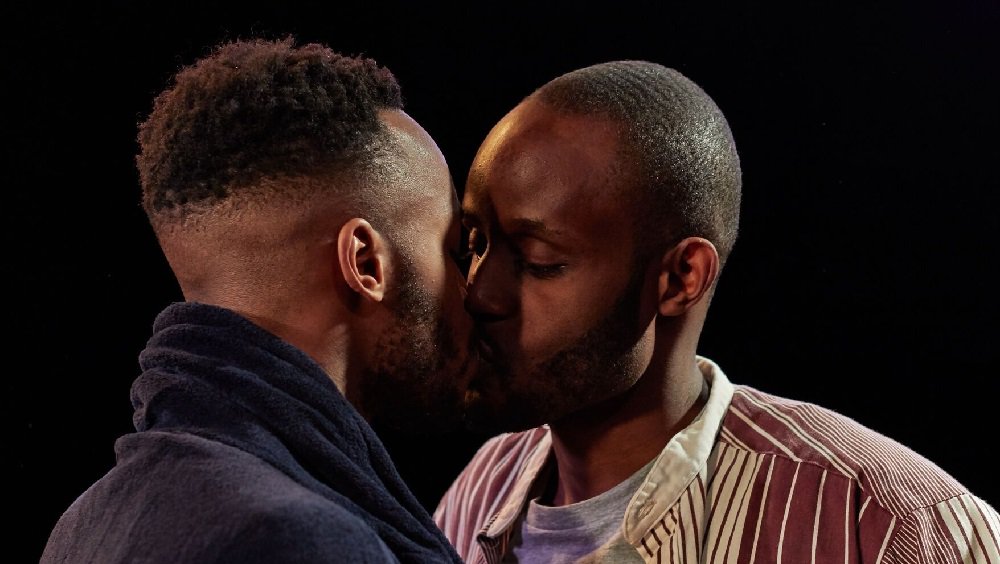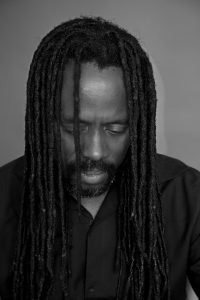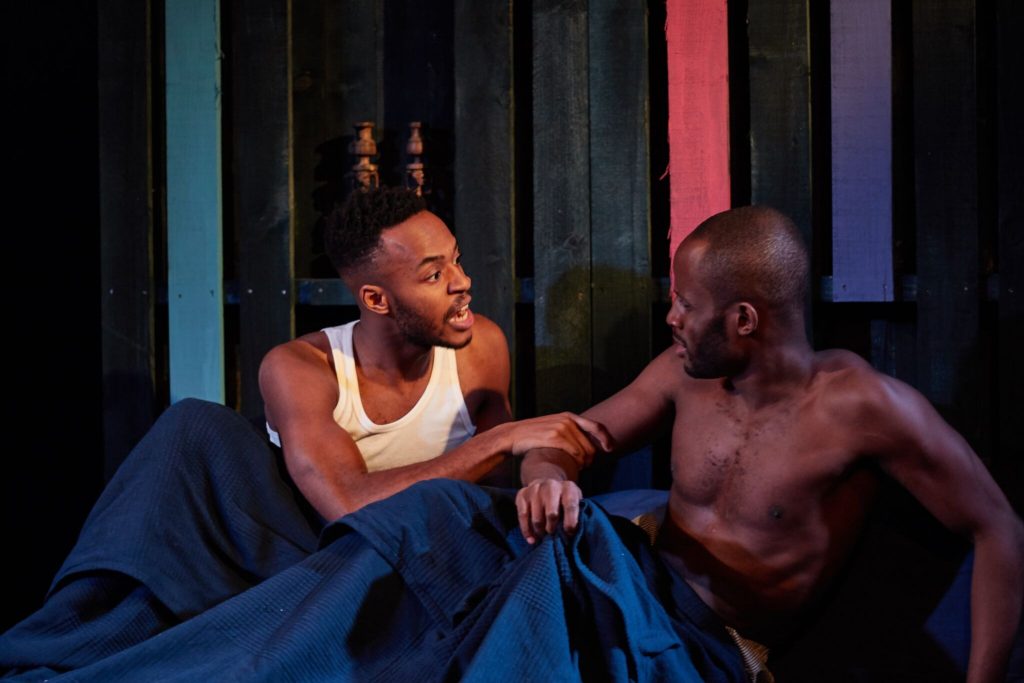Interview | ‘Boy With Beer’ playwright Paul Boakye on the importance of black gay love
By Josh Lee

Boy With Beer
’s original run in 1992 took a taboo and laid it out bare. At the turn of the ’90s, relationships between two men were rarely depicted. Rarer still was the story of two black men falling in love, and dealing with love’s consequences. Mainstream LGBT culture has grown exponentially in the following 24 years, but still the voices of black people within the community are conspicuously quiet.
Boy With Beer’s continuing relevance is both a testament to its enduring themes and an indictment of the dearth of diverse stories within mainstream LGBT culture. With the play returning to the stage this month, we spoke to playwright Paul Boayke about Boy With Beer’s origins, and why it remains a necessary piece of work.
Boy with Beer tells the love story between two men at the turn of the nineties. What can you tell us about the two lead characters?
Well, they are two men in their twenties. Karl is of West African origin, Ghanaian in fact, and 27. In the story he has been in London for nine years studying. He loves the place and basically he has met this young man, 24, at a nightclub the night before. They’ve taken a shine to each other and they’ve met the next day. Donovan is a young man of Caribbean background. although born in the UK. A truck driver and bisexual. He’s probably had his few dalliances with men in the past, but he’s not too experienced like that, and so they meet and try to ‘get it on’ as it were.
Both of the leads in the play are black. How do you think that impacts their love story?
You know, within black communities there can be a lot of stigma around sexuality, around homosexuality in particular. There is still of course stigma around HIV and AIDS, and at the time it was written, there was a lot of that about in many communities. So I think those two things impact on the characters’ love story in the sense that they are told that two men should not love each other. And that is the difficulty that they will bring to this story – this sort of taboo.
In the 90s when Boy With Beer was written, and still today, it’s very rare to find a gay themed story that focuses on the relationship between two black men. Was it important for you to provide that representation and show that specific dynamic?
Absolutely, absolutely. This is something I deliberately set out to do. Although the play evolved almost as an accident. I’d gone to the theatre with a director friend of mine, Topher Cambell, and we had seen a play which had a gay character in it. At the end of it he said to me, ‘That was shit, even you could write better than that.’ So I immediately went home started writing this scene which turned out to be the first act of Boy with Beer. It was important because we had never seen characters like ourselves on stage before and we wanted to tell the story. We wanted to tell the kind of taboo that most of us have had to live with in deciding that we were going to come out as gay men. What would the community think? What would our families say?
I was fortunate. There are lots who don’t get acceptance, and people have their families kick them out of the home. It’s important that people can see a reflection of themselves that they can feel good about. Even though of the course the play is working through some of that angst too! At the end of it, without wanting to give anything away… y’know, I think it’s a love story. Boy meets boy, boy loses boy, boy gets boy back…

Did you feel any pressure to create a more ‘PR friendly’ depiction of black gay and bi men, considering the lack of representation?
Oh, no. I’m the type of person who is quite blunt and to the point, and I think even more so as a writer I like to be honest and I like to be upfront. So if I’m writing about black characters I will write the honest truth that I see. It’s a case of wanting to explore the dynamics and the drama of the situation without PR. That is something else, that to me isn’t drama or theatre but something else – marketing, perhaps.
Do you think life has improved for the black LGBT community since the play was written?
There’s more acceptance in the world. We have marriage equality, we have HIV/AIDS more or less under control in developed countries. But I think within black communities we still have an issue, certainly in relation to HIV and AIDS. Black gay and bisexual men in Britain are said to be three to four times more likely to be HIV positive compared to their white counterparts, so there are issues still there, which have a lot to do with stigma. The very reason why I wanted to write this kind of play was to bring black men out of themselves, so people could be out and proud and do away with the kind of stigma that is still holding people back.
Who will this play resonate with?
Although the play is rooted in the specific, I think it’s universal. I think love is always universal and if handled in the right way I think anyone, any gay man, anyone gay or straight can watch the play and get something from it about themselves and how they feel, and how they behave in relationships. At the heart of Boy with Beer is power, it’s about the kind of power dynamics that couples go through in order to be comfortable with themselves. I hope everyone comes, men, women, straight, gay, black – but yes it would be nice for more black gay men to come out and see themselves reflected on stage because we don’t see that very often.
Have you been involved with any of the rehearsal process for this current revival or did hand your baby over and let them get on with it
I wanted to hand the baby over and let them get on with it. I have great trust in Harry Mackrill who is the director. It’s really because of his tenacity as to why the play is on. He contacted me whilst I was working in Ghana because he had found the play and read it and said he was falling in love with the play, and wanted to produce and direct it. So I’m really, really pleased and so thrilled with his ability that I wanted him to run with it, to take it and to run with it.

What do you think attracted him to the play 25 years on? What is still relevant all these years later?
I think because it’s about how people deal with relationships, how people deal with seeing rejection sometimes, it’s a play that isn’t necessarily rooted in a particular time. In one sense because we now have such a liberal society in the sense that we don’t need [LGBT] physical spaces, we are much more used to meeting complete strangers or inviting a complete stranger to our home. But this is essentially what the guys do [in the play]. They see each other the night before but in a dark club, all they did was exchange numbers, so when they meet again it’s sort of like they’re meeting for the first time in daylight. In this sense, I think people can relate.
Are you optimistic that the LGBT community will incorporate more diverse voices, moving forward?
I would love to be optimistic, I would love to think that that will happen. Most of the material is still really middle class white gay men. This is the first play with black characters that has been done by the King’s Head, which was surprising to me. I hope that we will be successful commercially, where they will be inclined to do so again not too long from now. I hope that the gay community will learn to be much more inclusive in the way that society is learning to be much more inclusive of gay, lesbian and trans people currently.
Boy With Beer runs at London’s King’s Head Theatre until November 26. For tickets and info visit kingsheatheatre.com.
More stories:
What will a Trump presidency mean for LGBT people?
Lady Gaga isn’t taking Donald Trump’s election victory lying down
